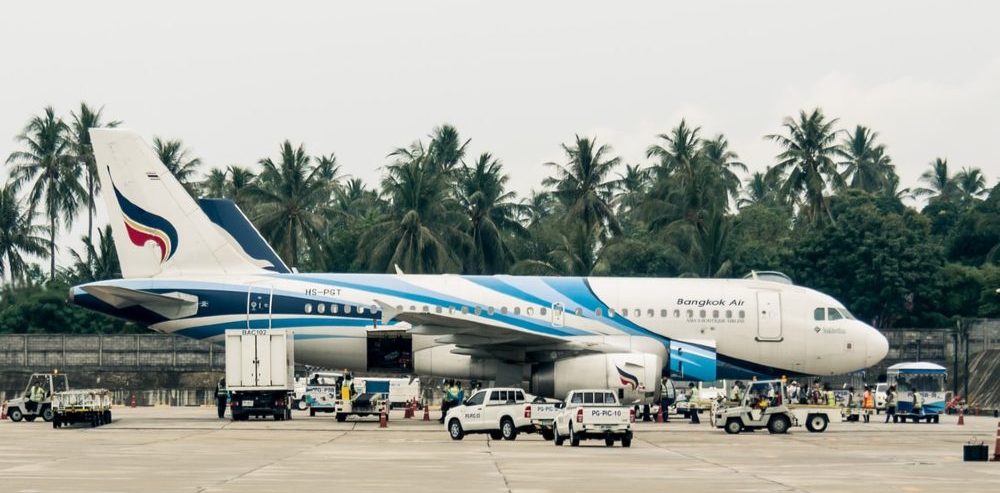Thailand to start welcoming medical tourists post-COVID-19
Thailand is likely to open its borders to medical tourists towards the end of July. Medical tourists, or tourists traveling for medical procedures, will be one of the first groups of international visitors able to enter the country since the international flight ban was imposed on April 4, 2020. Almost three months later, medical tourists will reportedly be allowed into the country under strict conditions. This Pacific Prime Thailand article covers what you need to know about medical tourists coming to Thailand post-COVID-19.
Traveling to Thailand as a medical tourist
According to a spokesman for the Centre for COVID-19 Situation Administration (CCSA), those who are seeking medical procedures, such as nose and eye cosmetic surgery and infertility treatment, will be allowed entry into Thailand – along with up to three caretakers. Those who seek treatment for COVID-19, however, will not be permitted, and only certain medical programs will be allowed for the time being.
On June 30, Thailand’s medical hub committee revealed the guidelines for medical tourism before starting to welcome international visitors. During the committee’s first meeting, decisions were made regarding quarantine requirements. Foreigners and Thais traveling to Thailand for medical treatment will be required to provide proof that they’ve been tested for COVID-19 before arriving in the country.
Medical tourists must have also been tested at least 72 hours before arriving in Thailand, and need to be in quarantine for 14 days. They will have to undergo three separate COVID-19 screenings during their visit to Thailand – before traveling to Thailand, upon arrival, and before going back home. Those who test positive for COVID-19 will be treated in designated areas for foreigners at private facilities and have to pay for their own treatment.
Aside from the screenings, visitors must also have a medical test before arrival, certificate of entry issued by a Thai embassy, and doctor appointment documents. Around 1,700 foreigners from 17 countries had already registered for entry into Thailand for medical services. In order to ensure effective disease control, medical tourists must arrive by air. Every case for medical and wellness tourists will be handled separately.
Quarantine for medical tourists
While Thai patients can either quarantine at a state hospital or another suitable alternative, foreign patients are required to book their quarantine accommodations in advance.
The quarantine location depends on the expected duration of the medical procedure. Patients undergoing treatments that take less than 14 days will complete the remainder of their quarantine at the facility where they’re receiving treatment. Similarly, patients arriving for treatments that take over 14 days will be able to reside in an “alternative hospital quarantine” facility. The government has been arranging for private and public hospitals to cater to medical tourists. As of July 3, 62 private hospitals had requested to participate.
From August 1, medical tourists will be able to travel throughout Thailand once the 14-day quarantine period has been completed.
What you can expect as a post-COVID-19 medical tourist in Thailand
While it may take some time before all tourists are permitted to enter Thailand, approved medical tourists are welcome to enjoy the Land of Smiles as long as they follow regulations. The Thai government is currently only allowing people from countries that have not had any new confirmed cases for a month or more, which has a significant impact on the number of tourists. What’s more, new cases can intensify at any time.
Generally speaking, the first medical tourists to experience the ‘new normal’ will need to get used to wearing a face mask whenever they are out in public. At present, the mask rule even applies to beaches. However, there is no restriction on the type of mask you have to wear, so you are free to wear a cloth mask, surgical mask, or other type of mask. Masks are easy to purchase in most minimarkets, supermarkets, and pharmacies across the country.
Temperature checking before entering shops, businesses, restaurants, and hotels, as well as needing to check in and out of establishments is common. Additionally, social distancing is currently enforced at many places by marking where you can and cannot sit. Alcohol gel/spray is readily available in many places, though it is handy to carry your own as well.
How medical tourism can help Thailand’s economy
Thailand has been one of the most successful countries to combat the coronavirus outbreak, with a decreased number of infected cases in a short amount of time as well as a minimum number of fatalities. As a result, hotel developers may be interested in targeting medical tourism visitors, which has been growing since 2016 despite the recent decline.
Medical tourism can significantly help the hotel market as well as become a key driver in future hotel concepts throughout Thailand. By focusing on public health, Thailand could potentially secure its position as one of the leaders in the medical industry.
Whether you’re looking for international health insurance or health insurance in Thailand, Pacific Prime Thailand is ready to help you find the right plan. As experts in medical insurance in Thailand, we combine our knowledge and relationships with the top insurers to ensure you get the best plan for your needs and budget. Contact us for expert advice or a free quote or plan comparison today.
- Premarital Checkup: What It Is and Why It Matters - September 20, 2023
- The Best Neighborhoods for Expats in Bangkok - July 27, 2023
- Thai Visa Guide for Expats and Foreigners - July 13, 2023





Comments
Comments for this post are closed.
We'll notify you
when our team replies!